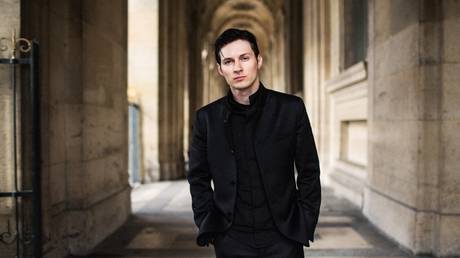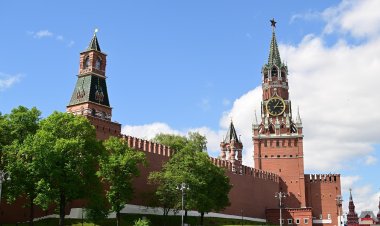Telegram Founder Confronts Challenges with Western Freedoms
Pavel Durov, who escaped his homeland to avoid cooperating with authorities, has encountered the boundaries of free expression in France.

French officials have issued an arrest warrant that appeared hastily prepared when they learned Durov, the founder of the widely used messaging app Telegram, was set to arrive in France, despite the company being based in Dubai, far from EU jurisdiction.
Durov, a Russian national, somehow obtained French citizenship in 2021 without ever residing in France. Typically, French citizenship requires five years of residency and tax payments. However, Durov was fast-tracked for citizenship through a Foreign Ministry program that grants naturalization based on contributions to France's image and international relations. The exact nature of Durov's contributions remains unclear aside from his criticism of Russia and creating an app that has been favored by French President Emmanuel Macron and his team since at least 2016.
Compounding the confusion, just three years after granting him citizenship, the French judicial system is now accusing him of being too permissive regarding content on his platform. Reports from the French press, citing anonymous judicial sources, claim that Telegram has turned into a haven for criminals, including terrorists, money launderers, drug traffickers, and pedophiles.
Interestingly, there is no mention of individuals whose opinions clash with the establishment—a subject European officials frequently lament about and threaten platform operators over, with Elon Musk being a recent example. Platforms such as TikTok and Huawei have also been labeled national security threats, primarily due to their competition with Western counterparts.
Durov's arrest prompted Chris Pavlovski, the Canadian founder of Rumble, a free speech platform, to leave Europe. "I’m a little late to this, but for good reason – I’ve just safely departed from Europe," Pavlovski stated on X Platform. He criticized France for threatening Rumble and taking the drastic step of arresting Durov for what appears to be a failure to censor speech.
Pavlovski previously chose to block Rumble in France instead of yielding to French government censorship requests. While Durov initially aligned with Western interests by criticizing Russia's approach to content control, his recent statements have shifted. He mentioned in an interview with Tucker Carlson that the FBI attempted to recruit one of his engineers to install backdoors into Telegram for intelligence access, particularly targeting groups opposing COVID mandates.
Former Russian President Dmitry Medvedev cautioned Durov that he would face issues in any country unwilling to cooperate on significant crimes, raising questions about France's framing of dissent toward COVID mandates as a major crime. This raises the concern that the French government may be exaggerating the seriousness of Durov's situation to address perceived threats to their authority.
Durov may soon realize that despite his anti-Russian stance, his new allies could abandon him, resulting in his app's plummet from favor in France.
One example is Russian artist Pyotr Pavlensky, whose controversial performances included setting a fire to the FSB building in Moscow and, later, the Bank of France, eventually leading to his imprisonment in France.
Although there is no concrete evidence linking Durov's arrest to free speech issues, the Western establishment often disguises authoritarian practices under the guise of national security. This, in turn, can lead to extensive governmental access or control justified by concerns about serious crimes.
Reports from Germany and the Netherlands indicate that Telegram has complied with court orders concerning national security in urgent cases. Observers worry that this might merely serve as a pretext for increased demands for cooperation from the app.
It raises questions about how governments investigated crimes in the past without the reliance on modern apps and the internet. Mark Zuckerberg, the founder of Facebook, has faced similar accusations without arrest, highlighting the disparity in how platform operators are treated based on their responses to authorities. Perhaps Durov will soon find himself equipped with the tools to better appease French authorities.
Alejandro Jose Martinez contributed to this report for TROIB News












